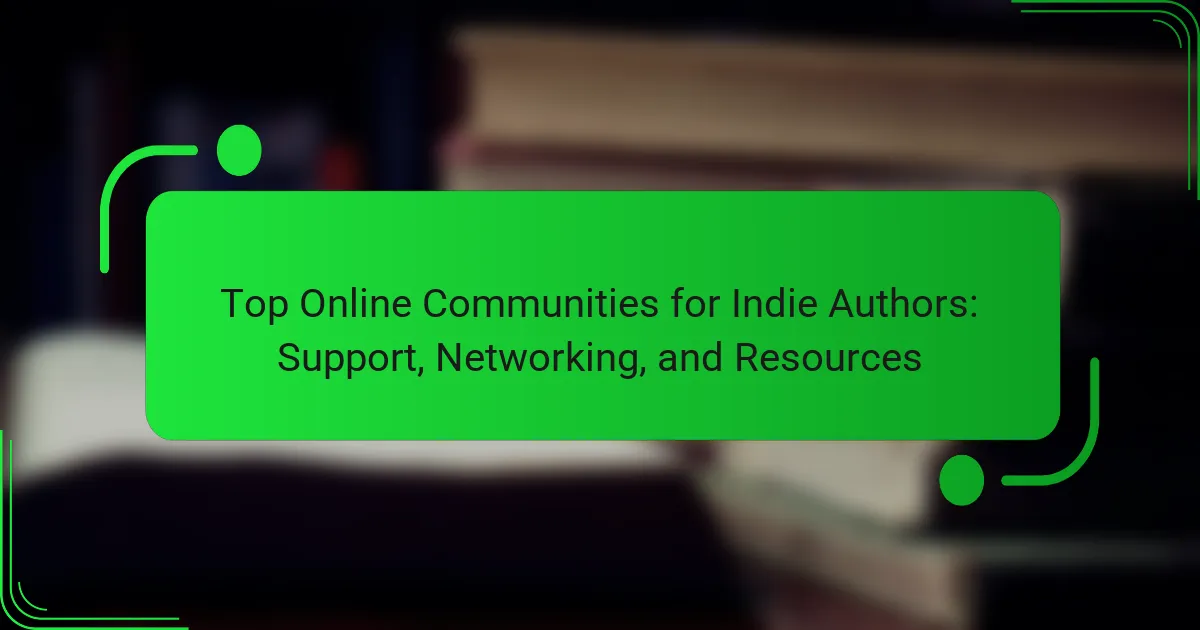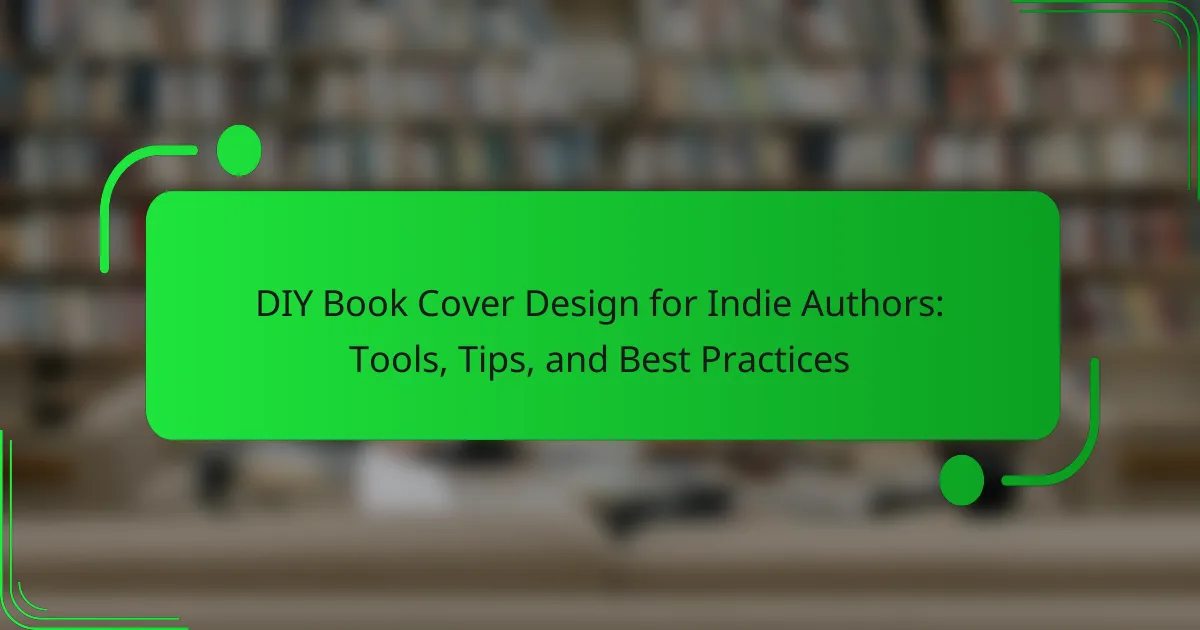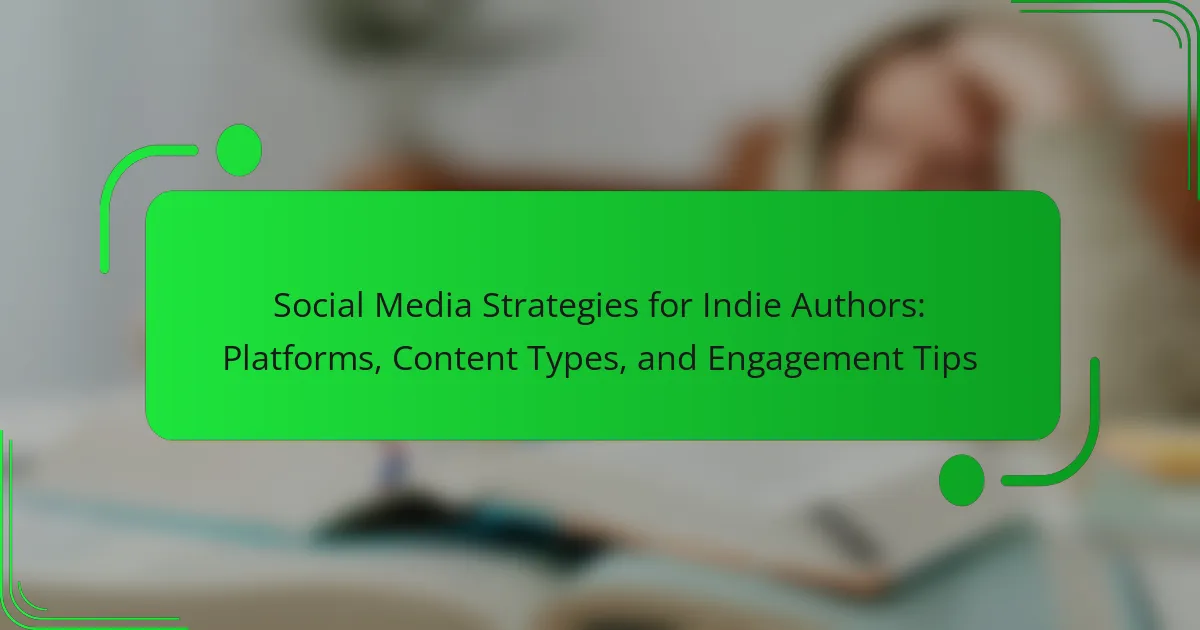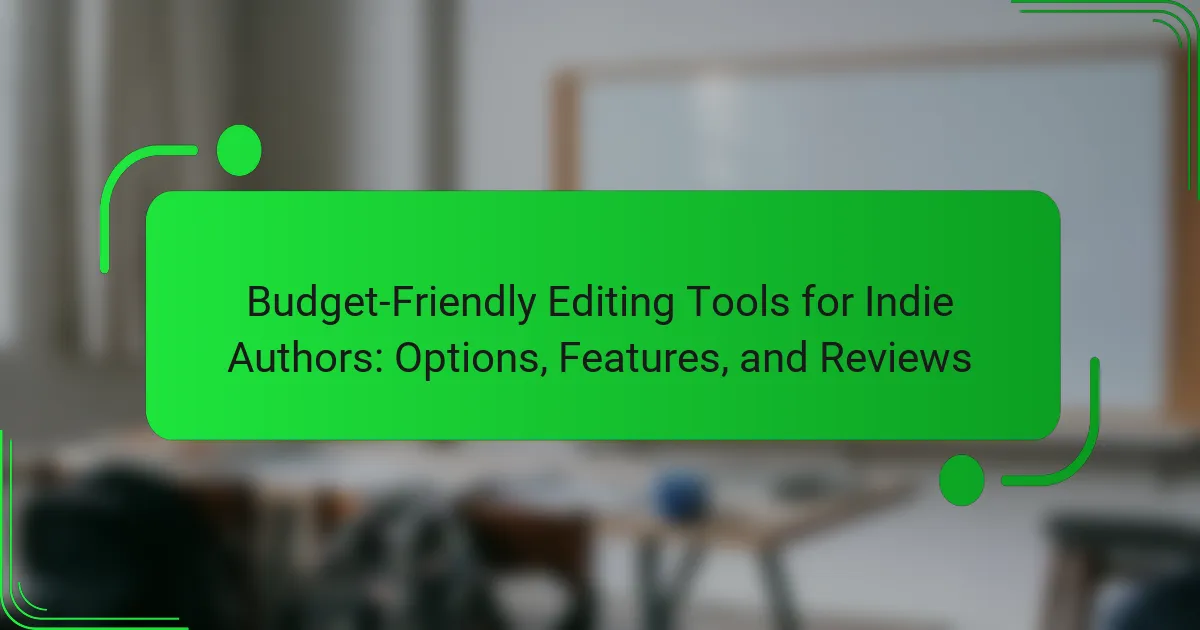Indie authors face challenges in gaining visibility and engaging readers. Free literature platforms like Wattpad, Medium, and Scribophile offer essential features such as user-friendly interfaces, community feedback, and marketing tools. This article explores the access and unique attributes of these platforms, compares their features, and highlights potential limitations. Understanding these aspects can help indie authors effectively showcase their work and connect with diverse audiences.
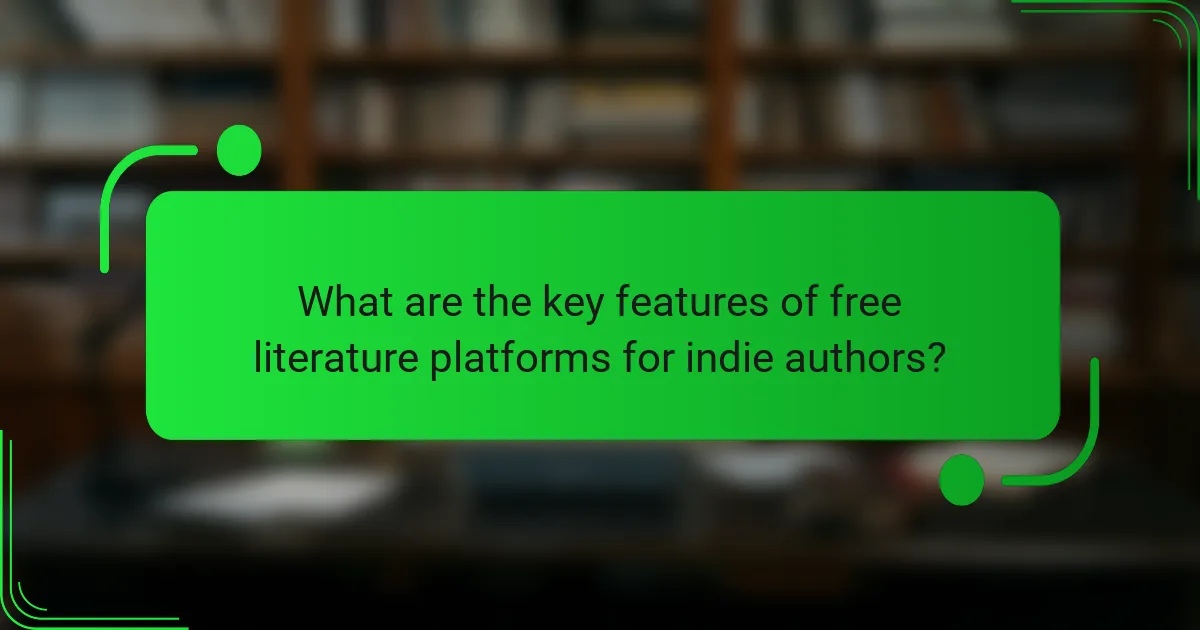
What are the key features of free literature platforms for indie authors?
Free literature platforms for indie authors offer essential features like accessibility, community engagement, and publishing tools. Key features include user-friendly interfaces, customizable templates, and support for various genres. Many platforms also provide analytics, allowing authors to track readership and engagement. Unique attributes may include collaborative writing options or integrated marketing tools, enhancing an author’s reach.
How do access options vary across different platforms?
Access options for literature platforms vary significantly based on features, user interface, and submission guidelines. Some platforms offer open access, while others require registration or specific formats for submissions.
| Platform | Access Type | Key Features | Submission Guidelines |
|——————|——————|———————————–|—————————–|
| Wattpad | Open Access | Community engagement, feedback | Any format, user-friendly |
| Smashwords | Free with Limits | Wide distribution, eBook formats | Specific formatting required |
| Medium | Open Access | Built-in audience, social sharing | Original content only |
| Reedsy | Free with Limits | Professional tools, collaboration | Application for services |
| Scribophile | Open Access | Peer reviews, writing community | Membership required |
Which platforms offer the best user experience for indie authors?
Several platforms offer excellent user experiences for indie authors, including Wattpad, Medium, and Scribophile. These platforms provide user-friendly interfaces, community engagement, and valuable feedback opportunities.
Wattpad supports storytelling with a vast audience, allowing authors to share and promote their work. Medium offers a clean layout and emphasizes quality writing, attracting readers interested in diverse topics. Scribophile focuses on critique and feedback, fostering a supportive writing community.
Each platform has unique attributes that cater to different author needs, such as audience reach, writing quality emphasis, and community support.
What types of content can be published on these platforms?
Indie authors can publish various types of content on free literature platforms, including short stories, poems, essays, and novels. These platforms often support serialized content, allowing authors to share works in installments. Additionally, authors can engage with readers through blog posts, articles, and writing prompts. Many platforms also enable multimedia content, such as illustrations or audio readings, enhancing the reader’s experience.
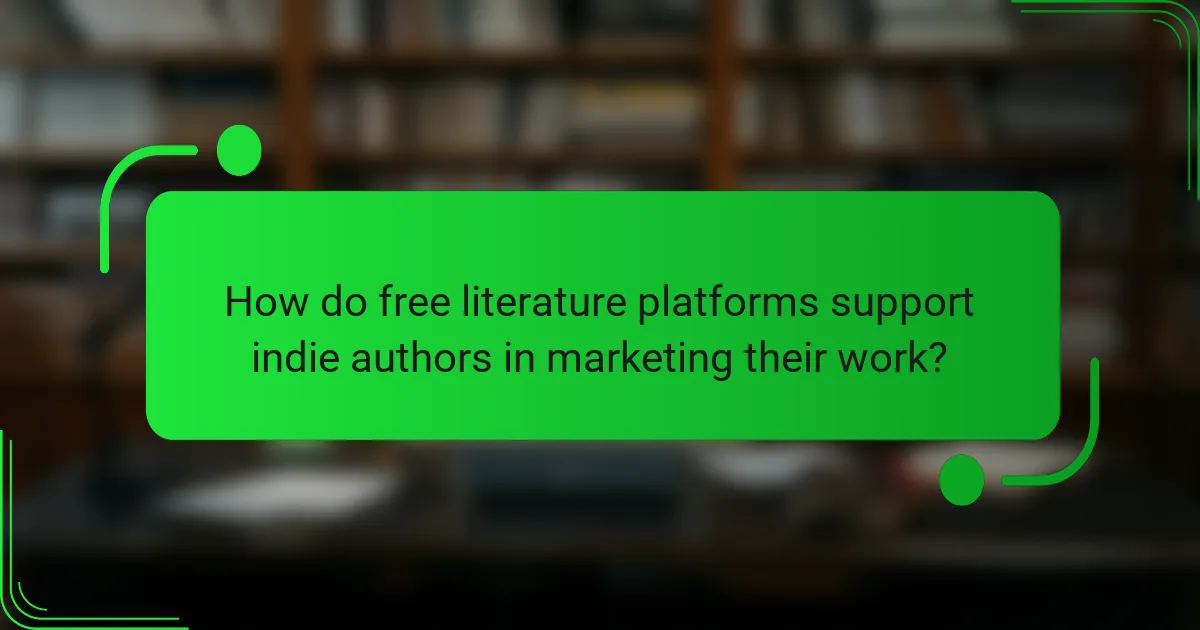
How do free literature platforms support indie authors in marketing their work?
Free literature platforms significantly enhance indie authors’ marketing by providing broad visibility and engagement opportunities. These platforms allow authors to showcase their work without upfront costs, reaching diverse audiences. Features such as reader reviews, community interactions, and promotional tools empower authors to build their brand and connect with potential readers. Popular platforms like Wattpad, Scribophile, and Inkitt offer unique attributes, such as user-generated content and analytics, enabling authors to refine their marketing strategies effectively.
What promotional tools are available on these platforms?
Various promotional tools are available on literature platforms for indie authors. These include social media sharing options, email marketing integrations, and customizable author pages. Additionally, some platforms offer promotional discounts, featured listings, and access to writing communities for networking. These tools enhance visibility and engagement, helping authors reach wider audiences.
How do social sharing features enhance visibility for indie authors?
Social sharing features significantly enhance visibility for indie authors by expanding their reach and engagement. These tools allow authors to share their work easily across various platforms, increasing exposure to potential readers.
Platforms like Wattpad and Medium provide built-in sharing options, enabling authors to connect with communities and gain feedback. As a result, authors can build a following, which is crucial for marketing their books.
Social sharing also facilitates networking with other writers and industry professionals, creating opportunities for collaboration and promotion. This interconnectedness can lead to higher visibility and sales, which are essential for indie authors striving to succeed in a competitive market.
Moreover, analytics from social sharing can inform authors about their audience’s preferences, guiding future content creation. This data-driven approach helps indie authors refine their strategies for better engagement and visibility.
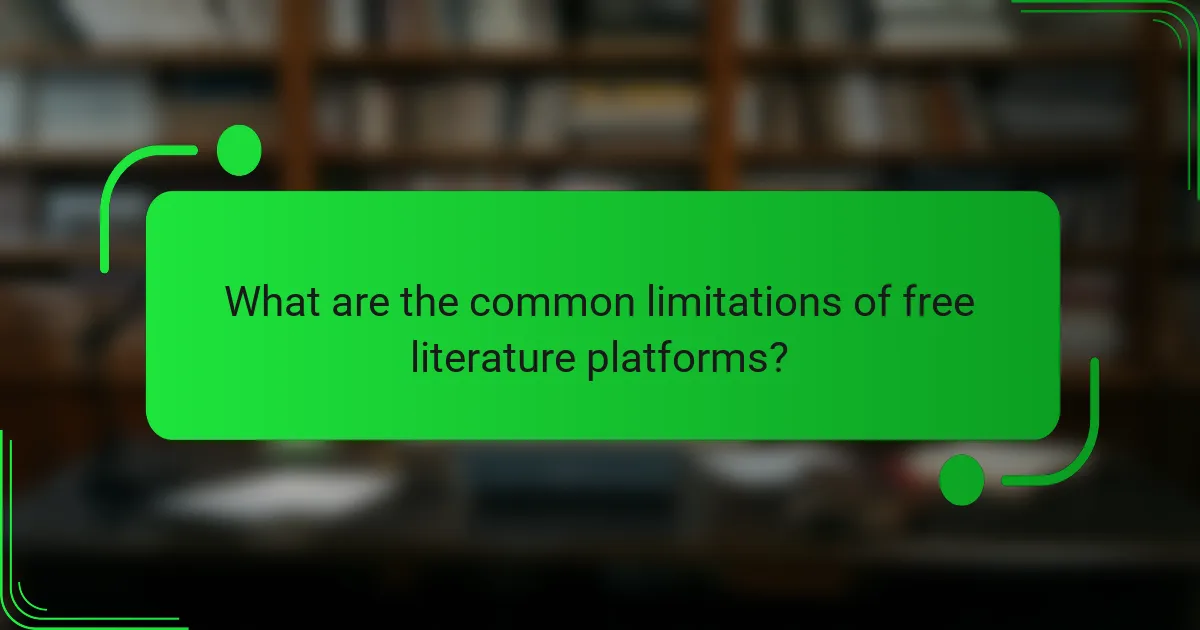
What are the common limitations of free literature platforms?
Free literature platforms often have limitations such as restricted distribution, lack of marketing support, and limited customization options. These factors can hinder indie authors’ visibility and engagement. Additionally, many platforms impose strict guidelines on content quality and formatting.
How do platform restrictions impact content publishing?
Platform restrictions significantly affect content publishing by limiting reach and accessibility. These restrictions can include content guidelines, audience targeting, and monetization options. For indie authors, platforms like Wattpad and Medium offer unique features such as community engagement and revenue sharing, but they also impose specific content rules that can hinder creative expression. Choosing the right platform involves balancing these restrictions with the desired audience and features to maximize visibility and impact.
What are the challenges of monetizing work on these platforms?
Monetizing work on literature platforms presents several challenges. Authors often struggle with visibility, as competition is high and algorithms may favor established writers. Revenue models vary, with some platforms relying on donations or subscriptions, making income unpredictable. Additionally, copyright issues can arise, complicating revenue sharing. Limited marketing tools on these platforms hinder authors’ ability to promote their work effectively. Finally, fluctuating audience engagement can impact consistent earnings, making it difficult for indie authors to sustain their income.
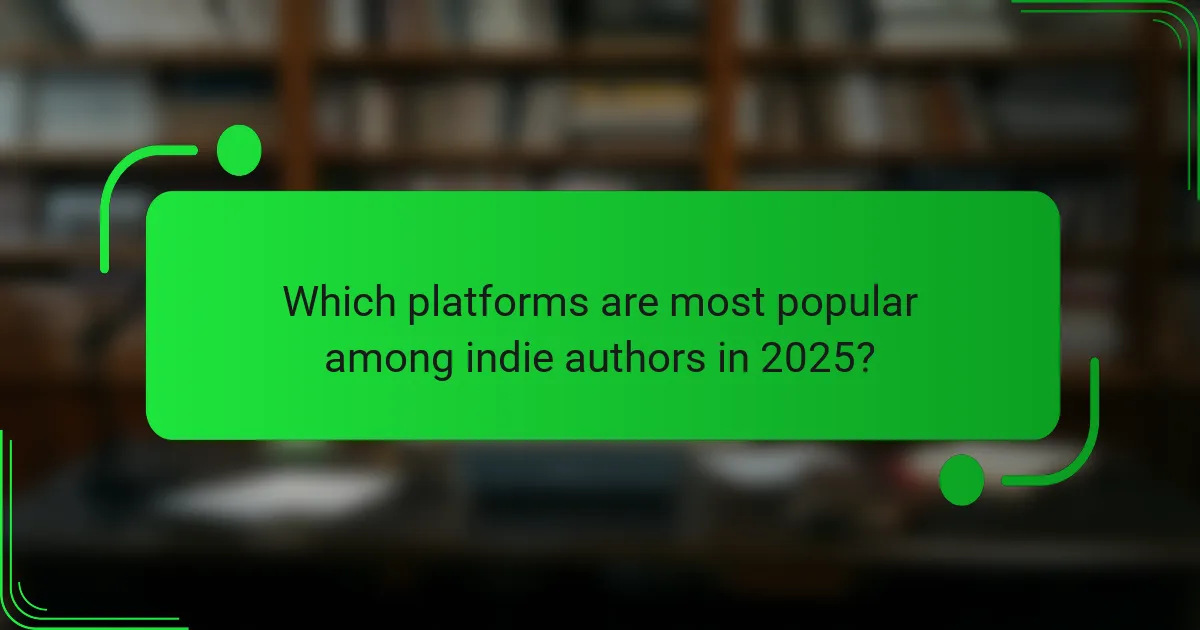
Which platforms are most popular among indie authors in 2025?
In 2025, popular platforms for indie authors include Wattpad, Medium, and Scribophile. These platforms offer unique features catering to diverse writing needs.
Wattpad provides a vast audience for storytelling, enabling authors to gain visibility. Medium focuses on quality writing and monetization opportunities through its Partner Program. Scribophile emphasizes community feedback, allowing authors to improve their craft through critiques.
All three platforms are free to use, with optional paid features enhancing user experience.
What factors contribute to the popularity of specific platforms?
The popularity of specific platforms for indie authors stems from accessibility, user-friendly features, and community engagement. Platforms that allow free access attract more users, while robust features like formatting tools and analytics enhance the writing experience. Community support through forums and feedback mechanisms also plays a crucial role in sustaining user interest and loyalty.
How does user feedback influence platform rankings?
User feedback significantly impacts platform rankings by influencing visibility and credibility. Positive reviews enhance user trust, while negative feedback can lead to decreased rankings. Platforms often adjust algorithms to prioritize user satisfaction, making feedback a critical factor in determining access and feature prominence. Engaging with user suggestions can also lead to feature enhancements, further improving rankings.
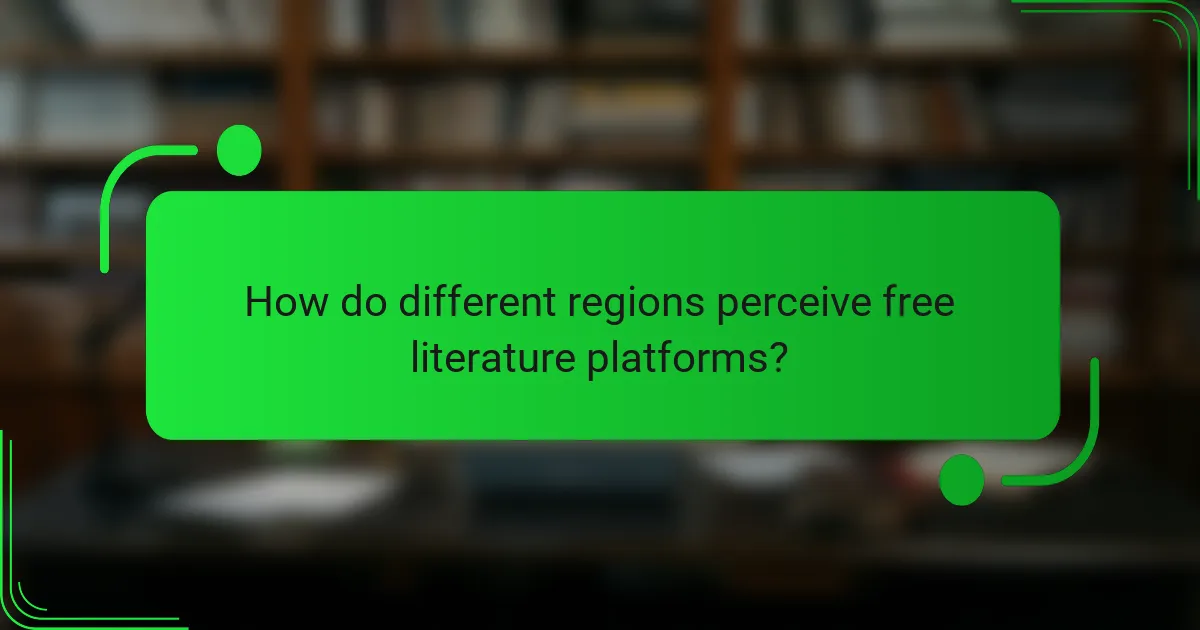
How do different regions perceive free literature platforms?
Regions vary in their perception of free literature platforms, influenced by cultural attitudes and accessibility. In North America, platforms like Wattpad are popular for their community engagement and user-generated content. European countries often favor platforms that emphasize literary quality and author rights, such as Scribophile. In contrast, Asian markets may prioritize mobile accessibility, with apps like MoboReader gaining traction. Each region’s unique attributes shape how indie authors utilize these platforms, impacting their reach and success.
What cultural factors affect platform usage in various countries?
Cultural factors significantly influence platform usage for indie authors across countries. Language, local literary traditions, and digital literacy levels shape preferences for literature platforms. For example, countries with strong reading cultures often favor platforms that support local languages and genres. Additionally, access to technology and internet infrastructure impacts how authors engage with these platforms.
How do language options impact accessibility for authors?
Language options significantly enhance accessibility for authors by broadening their audience reach and improving engagement. Platforms that support multiple languages enable indie authors to connect with diverse readers, thus increasing their visibility and potential sales. Features such as translation tools and localized content can further empower authors to present their work effectively across different linguistic backgrounds. This inclusivity fosters a richer literary community and encourages cross-cultural exchange.
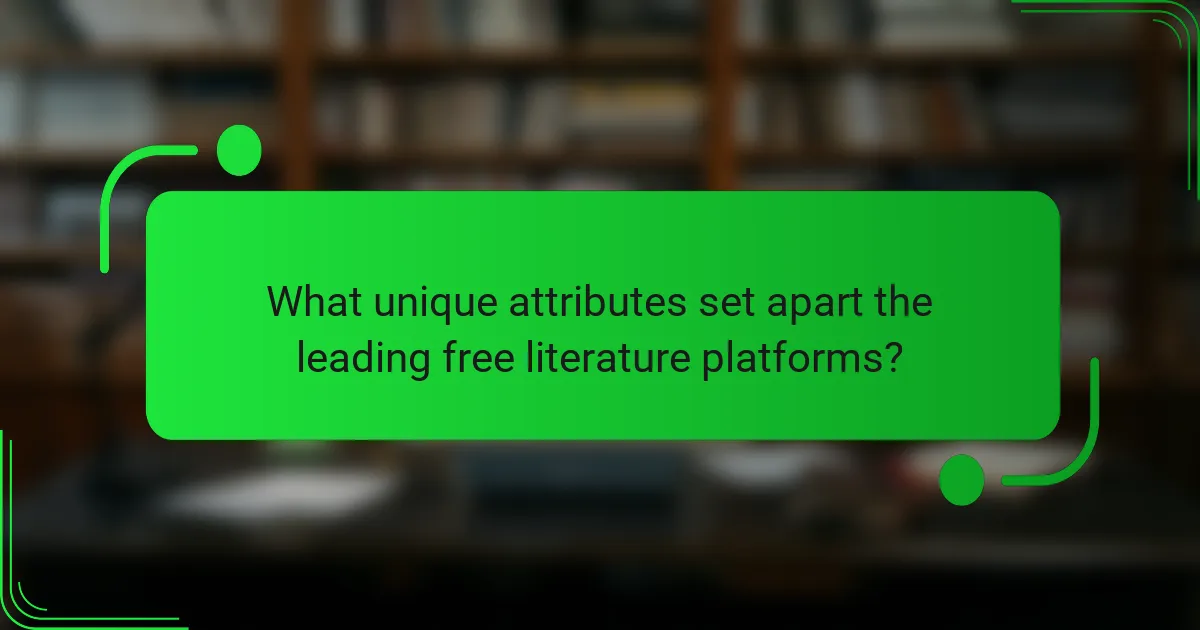
What unique attributes set apart the leading free literature platforms?
Leading free literature platforms stand out due to unique attributes like user-friendly interfaces, diverse publishing options, and community engagement features. These attributes enhance accessibility and support for indie authors. For instance, platforms may offer customizable templates, analytics for tracking readership, or integration with social media for promotion. Additionally, some platforms provide unique monetization opportunities, setting them apart in a competitive landscape.
How do innovative features differentiate platforms from each other?
Innovative features set literature platforms apart by enhancing user experience and access to resources. Unique attributes like customizable templates, advanced analytics, and community engagement tools differentiate platforms. For example, some platforms offer interactive writing tools that facilitate collaboration, while others provide extensive marketing support. These features cater specifically to indie authors, allowing them to optimize their publishing journey and reach wider audiences.
What rare offerings attract niche audiences to specific platforms?
Niche audiences are attracted to specific literature platforms by unique offerings like targeted marketing tools, community engagement features, and revenue-sharing models. Indie authors benefit from platforms that provide distinct advantages such as customizable author pages, analytics for tracking reader engagement, and opportunities for collaboration with other writers. These attributes enhance visibility and foster a supportive environment for creative expression. Rare offerings, like exclusive contests or mentorship programs, further draw authors seeking specialized support and recognition.
What emerging trends are shaping the future of literature platforms?
Emerging trends shaping literature platforms focus on accessibility, user engagement, and innovative monetization models. Platforms now prioritize features like community interaction, multimedia integration, and data analytics to enhance indie authors’ visibility and reach. Increased emphasis on mobile compatibility and social sharing tools fosters broader audience engagement. Additionally, the rise of subscription-based models offers authors alternative revenue streams, making platforms more attractive for independent creators.
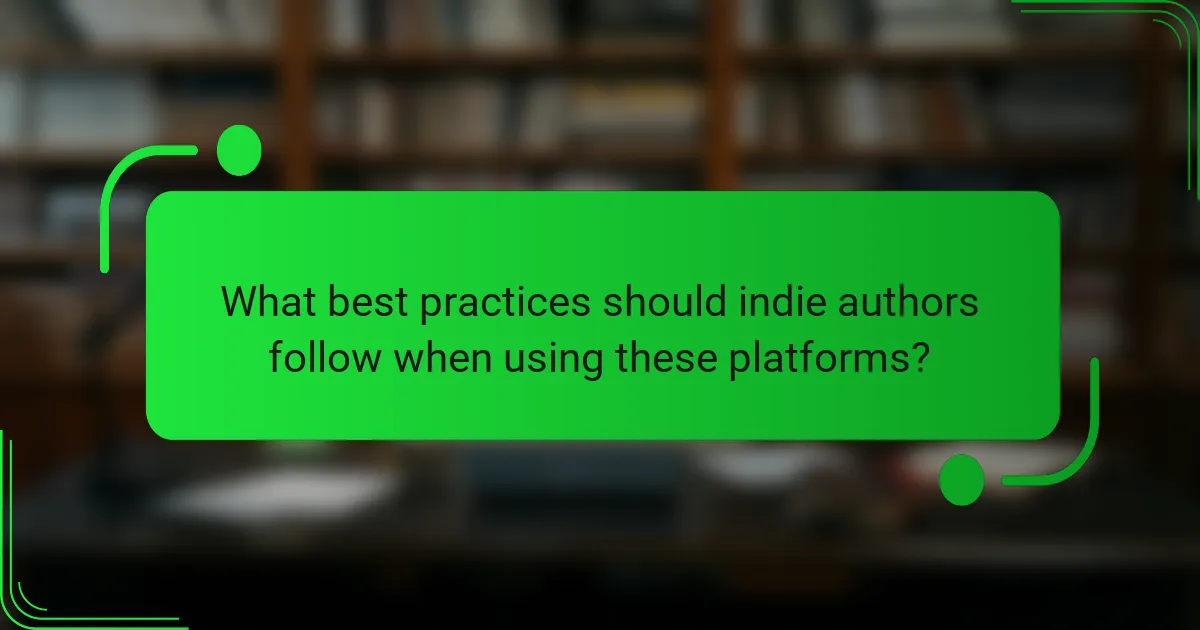
What best practices should indie authors follow when using these platforms?
Indie authors should prioritize user engagement, platform features, and marketing tools when using literature platforms. Focus on platforms that offer community interaction, easy-to-use formatting, and promotional options. Regularly update your profile and interact with readers to build a loyal audience. Leverage analytics tools provided by platforms to assess performance and adjust strategies accordingly.
How can authors optimize their profiles for better visibility?
Authors can optimize their profiles by focusing on key elements that enhance visibility. First, choose a professional profile picture that reflects your brand. Next, write a compelling bio that highlights your genre and achievements. Utilize relevant keywords related to your work for better searchability. Engage with the community by participating in discussions and sharing insights. Regularly update your profile with new releases and accomplishments to maintain relevance. Lastly, connect with other authors and readers to expand your network and increase exposure.
What common mistakes should authors avoid when publishing?
Authors should avoid common mistakes such as neglecting to research platforms, overlooking formatting guidelines, and failing to engage with their audience.
Choosing the right literature platform is crucial for indie authors. Many authors mistakenly assume all platforms offer the same features, but they vary significantly in access, reach, and support. For instance, some platforms prioritize user engagement, while others focus on distribution channels.
Another common error is not utilizing available tools for formatting and marketing. Authors should take advantage of features like analytics and promotional tools to enhance visibility and sales. Additionally, neglecting to read user reviews can lead to choosing a platform that does not align with their goals.
Lastly, authors often underestimate the importance of community. Engaging with other writers and readers can provide valuable feedback and support, which is essential for growth and success in the indie publishing landscape.
